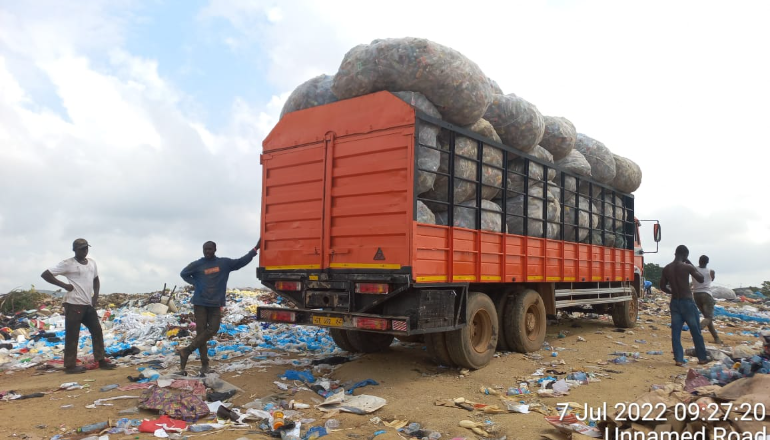Nsawam Ghana

Nsawam Ghana
Mon - Sat 8:00 am to 6:00 pm
Have any questions?
+233 24 340 7891
Waste management is a pressing issue in Ghana, as the country grapples with the challenges of growing urbanization and population expansion. The demand for efficient waste management services has never been higher. In this blog post, we will delve into the waste management services available in Ghana, highlighting the essential roles they play in keeping communities clean and promoting environmental sustainability.
Waste collection is a fundamental component of waste management in Ghana. Several waste management companies and local authorities provide waste collection services to households, businesses, and industrial facilities. These services involve the regular and systematic removal of waste from various sources. Proper waste collection ensures that waste is not left to accumulate in public spaces, reducing the risk of environmental pollution and public health issues.
Recycling is gaining momentum in Ghana, thanks to the efforts of waste management services that promote recycling initiatives. These services encourage the separation of recyclable materials, such as paper, plastic, glass, and metals, from non-recyclable waste. The collected recyclables are then processed and reused, reducing the burden on landfills and conserving valuable resources. Recycling services are crucial for achieving a sustainable and circular economy in Ghana.
Landfills are essential waste disposal facilities in Ghana. Waste management services, both private companies and public authorities, are responsible for managing landfills. Proper landfill management includes site selection, construction, maintenance, and adherence to environmental regulations. Effective landfill management is crucial to prevent soil and water contamination and ensure that waste disposal is safe and environmentally responsible.
Composting services are gaining popularity as a sustainable waste management solution in Ghana. Organic waste, such as food scraps and yard waste, can be composted to produce nutrient-rich soil amendments. Waste management services that offer composting solutions help divert organic waste from landfills, reduce greenhouse gas emissions, and promote healthier soil for agriculture and landscaping.
Many waste management services in Ghana are actively engaged in public awareness and education campaigns. They educate communities about the importance of responsible waste disposal and recycling practices. These efforts aim to change behavior and encourage individuals to become active participants in waste management, contributing to cleaner and more sustainable communities
The management of electronic waste (e-waste) is a growing concern in Ghana, as the country witnesses an increase in electronic device usage. Specialized waste management services cater to the proper disposal and recycling of e-waste, ensuring that hazardous materials are managed safely and valuable resources are recovered.
Waste management services in Ghana play a vital role in maintaining clean and sustainable communities. They offer a range of essential services, from waste collection and recycling to landfill management and composting. These services not only address the challenges posed by waste generation but also promote environmental responsibility and public health. As Ghana continues to grow and develop, the expansion and improvement of waste management services will be crucial for a greener and more sustainable future. Public awareness and cooperation are equally important in ensuring the success of these services and in achieving a cleaner and healthier Ghana.
2 Comments
Kevin Martin
I enjoyed reading this article. Will definitely come back for more
Sarah Albert
Nice one there. Good to have some knowledge about an African country